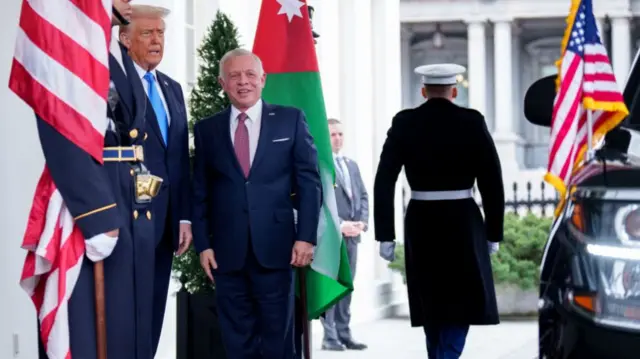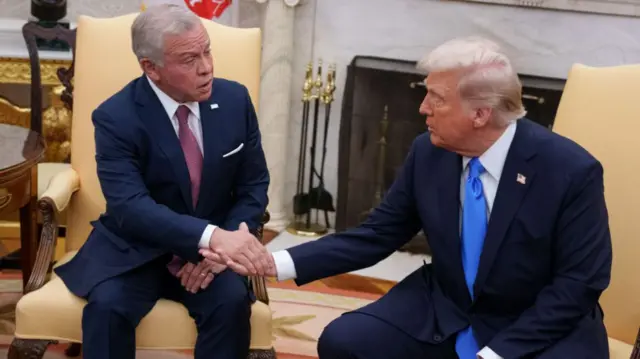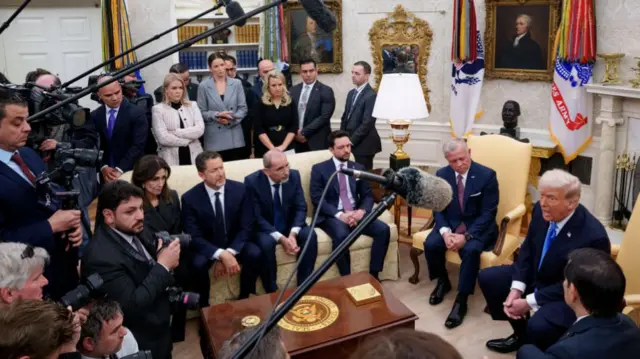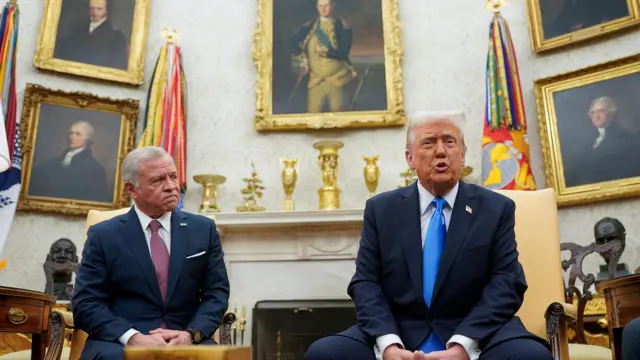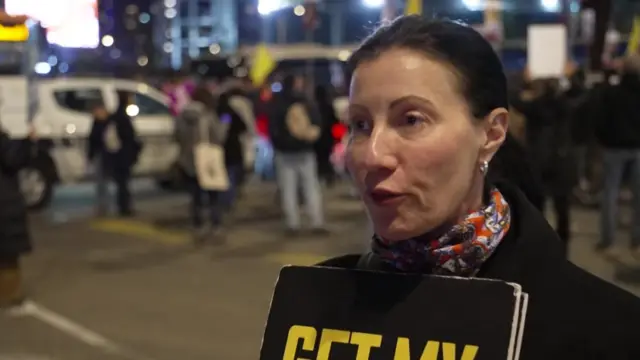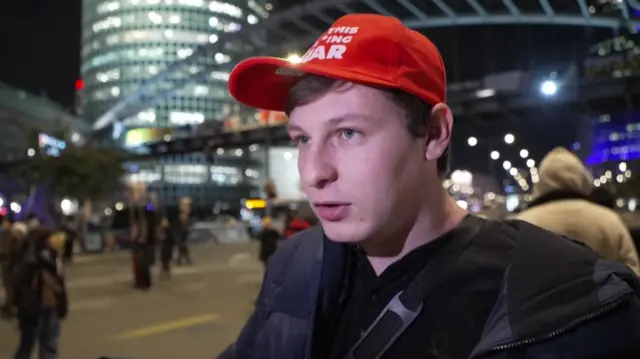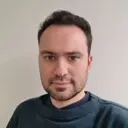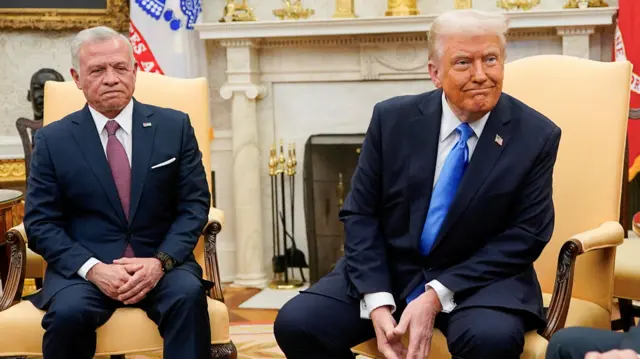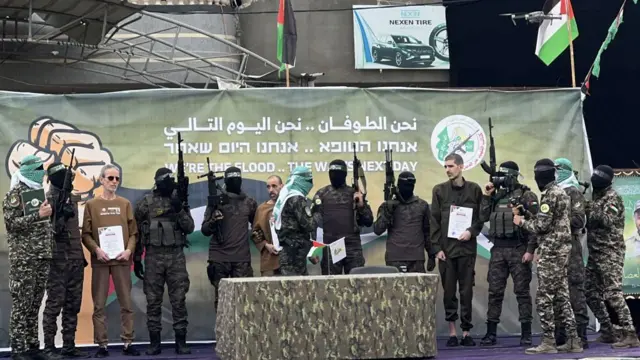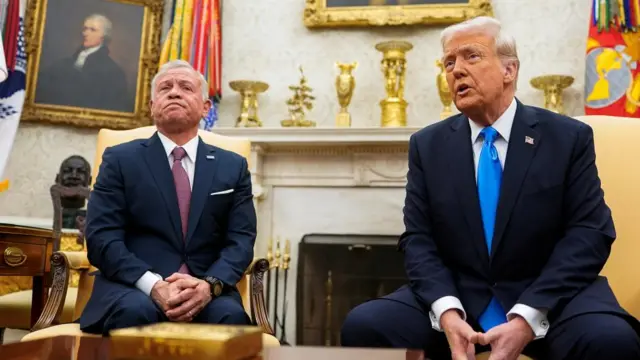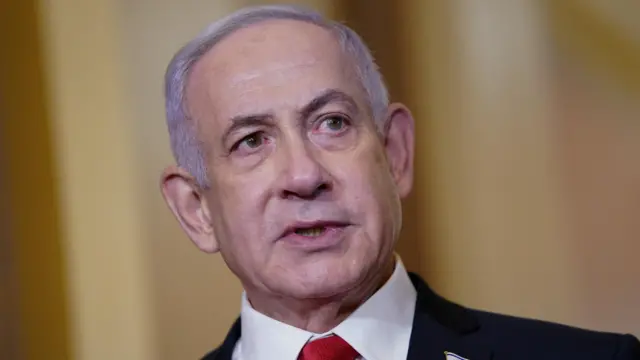Delicate ceasefire in precarious positionpublished at 22:26 GMT 11 February
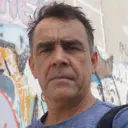 Wyre Davies
Wyre Davies
reporting from Jerusalem
An Israeli government minister, Miri Regev, made it clear her government supported President Trump's statement that all Israeli hostages should be released.
Her comments came after Benjamin Netanyahu said the Israeli military would "return to intense fighting" in Gaza if the hostages weren't freed by Hamas on Saturday.
But Netanyahu hasn’t been clear whether he’s insisting that all 76 hostages should be freed by the deadline - or whether he's referring to around three named hostages, as outlined in the ceasefire agreement. It's a confusing picture, reflecting the precarious and delicate nature of the ceasefire.
Hamas had initially said it was postponing this weekend’s scheduled release of hostages, accusing Israel of violating the agreement. Hamas now says it remains committed to the ceasefire, which also has overwhelming support in Israel.
If, by the end of this week, Hamas does release the three named hostages it intends to release, Prime Minister Netanyahu will face intense pressure not to resume the fighting.
